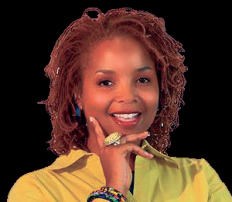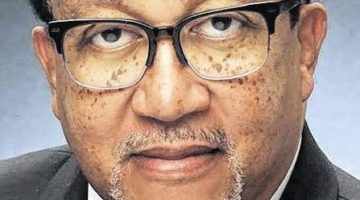TAMEKA BRADLEY HOBBS
“Historically, pandemics have forced humans to break with the past and imagine their world anew. This one is no different. It is a portal, a gateway between one world and the next. We can choose to walk through it, dragging the carcasses of our prejudice and hatred, our avarice, our data banks and dead ideas, our dead rivers and smoky skies behind us. Or we can walk through lightly, with little luggage, ready to imagine another world. And ready to fight for it.” – Arundhati Roy, April 2020
Novelist Arundhati Roy, in writing about her native India in the early days of the global coronavirus pandemic, described it as a portal, a severe disruption of norms that offered the opportunity for people to imagine new possibilities for themselves, their
societies, and their governments. While Roy was focused on India, I embrace the challenge of her dream, imagining a new universe of possibilities for the United States and the world on the other side of the havoc being wrought by the pandemic.
We’ve seen the beginnings of this
change germinate within our pandemic pause and a tragedy. It was during a period of quarantine, and the slowdown it created, that Americans of all backgrounds absorbed the murder of George Floyd. I have often wondered what was different about Floyd’s killing and all the others – Trayvon Martin, John Crawford, Tamir Rice, Michael Brown – that elicited such a strong reaction, not only from the Black community but from people of all stripes, not just in the US but around the globe.
SLOWED, FOR MOVEMENT
I have concluded that it was the fact that we were still; and in the stillness brought on by the coronavirus, more people had the bandwidth to bear witness to and truly absorb the callous horror of the careless violence exercised against Floyd. And they were moved.
The results have been stunning. The cry of “Black Lives Matter” was transformed, for many Americans, from a
misunderstood annoyance to a vivid and valid movement. Suddenly politically correct, statements in support of the ethos and the BLM movement flowed from surprising quarters of business and industry. Institutions issued statements, only to be challenged to move deeper than lip service.
Then major corporations began to back up the words with major commitments. Bank of America announced a $1 billion effort to address civil rights, social justice, and economic mobility. The Ford Foundation announced $1 billion in Social Bonds, the proceeds of which would “sustain and strengthen mission-critical social justice and creative expression organizations.” Facebook came forward with $20 million.
The Biden-Harris campaign has foregrounded racial inequality as a part of the priorities for their administration when they assume power in January 2021. More than lip service, investment of this type holds the promise for substantial change and signals a significant step forward in addressing social injustice and racial inequality in the US. Likewise, many institutions accepted the challenge of the movement and took steps to be a part of the solution, like Florida Memorial University’s Social Justice Institute.
While these new developments are encouraging, there is much that has to be sorted out. How will these funds be distributed? In the spirit of kujichagulia, or self-determination, will the Black community and its leaders be consulted in meaningful ways as organizations plan to address these widespread problems? How long will these commitments last? Will it reach beyond the performative expressions of solidarity, and instead seek to address the root of systemic racism, beginning with individual racial bias, and extending to policies that create disparities?
The promise is great but so is the need. The racial and economic disparities that existed before the pandemic have only been exacerbated. The repercussions of unemployment, eviction, infection, and loss of life will be felt for years to come, challenging us to fight on the dual fronts of both reform and recovery. It calls for us to exercise the values lifted up during the Kwanzaa holiday – umoja, or unity, and ujima, collective work and responsibility. While the battle is uphill, the disruption offers us the opportunity to be creative, to exercise innovation, and completely reimagine the work and the ways that we undertake it.
Tameka Bradley Hobbs, Ph.D., is director of the Florida Memorial University Social Justice Institute.












No Comment